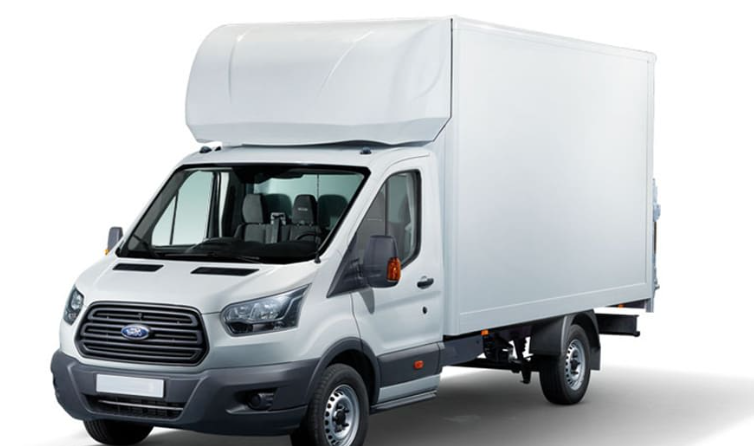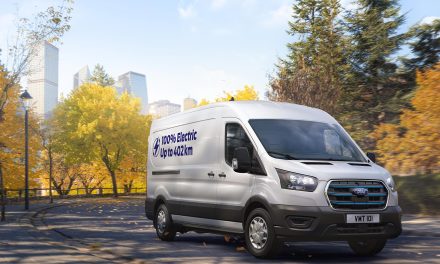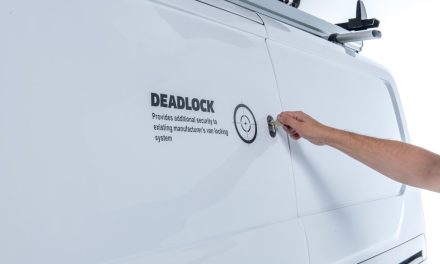The Ultimate Guide to Box Vans: Uses, Benefits, and Buying Tips
What Is a Box Van?
Box vans, often referred to as cube vans or box trucks, are specialized commercial vehicles designed for one primary purpose: transporting goods safely and efficiently. Unlike standard vans, where the cargo space is integrated with the cab, a box van features a large, rectangular cargo area that’s entirely separate from the driver’s cabin. This design provides an enclosed, spacious environment that can accommodate a variety of goods, from furniture and retail products to equipment and supplies. The separation between the cab and the cargo area not only enhances security but also maximizes the available space for storage.
The versatility of box vans makes them a valuable asset across multiple industries. In the moving industry, for example, box vans are indispensable. Their spacious cargo area can house everything from heavy furniture to delicate items, ensuring that possessions are transported securely. Retail businesses, particularly those with delivery services, also rely heavily on box vans. The enclosed nature of the van offers protection against the elements, ensuring that products reach customers in pristine condition. Furthermore, some food service businesses use specially equipped, refrigerated box vans to keep perishable goods fresh during transport.
Benefits of Owning a Box Van
The decision to invest in a box van can bring several advantages, especially for businesses that frequently need to move goods. Security is one of the most significant benefits. The enclosed cargo area protects valuable items from theft and weather damage, providing peace of mind whether you’re transporting expensive electronics, fragile items, or bulky equipment. Additionally, the versatility of box vans cannot be overstated. These vehicles come in various sizes, catering to different needs, whether you’re running a small delivery service or a large moving company.
Another notable benefit is the ease of loading and unloading. Many box vans are equipped with features such as hydraulic lift gates, which simplify the process of handling heavy or bulky items. This not only reduces the physical strain on workers but also speeds up operations, making your business more efficient. Moreover, the large, flat sides of a box van present an excellent opportunity for branding. By applying your company’s logo and contact information, you can turn your van into a mobile advertisement, promoting your business wherever you go.
Owning a box van can also be a cost-effective solution for businesses that require regular transportation of goods. While renting a vehicle for each job can quickly add up, having your own box van eliminates these recurring costs and provides greater flexibility. You can schedule jobs at your convenience without worrying about vehicle availability.
Key Considerations When Buying a Box Van
Choosing the right box van for your needs involves more than just picking a vehicle that looks good or fits within your budget. One of the first things to consider is the size and capacity of the van. The size of the cargo area should align with the type and volume of goods you plan to transport. Overestimating your needs could result in higher costs for a larger van than necessary, while underestimating could leave you with insufficient space, causing logistical headaches down the line. It’s crucial to strike the right balance to ensure that your van meets your business requirements without unnecessary expense.
Fuel efficiency is another critical factor to take into account. Box vans, by their nature, are not the most fuel-efficient vehicles on the road, but some models offer better mileage than others. A van with good fuel economy can save you a significant amount in operational costs, particularly if your business involves long-distance travel or frequent deliveries.
The decision between purchasing a new or used box van is also important. A new van will come with the latest features, a warranty, and potentially better fuel efficiency. However, new vans are more expensive upfront. On the other hand, a used van can be more affordable, though it might require more maintenance and may not offer the same level of reliability as a new model. If you opt for a used vehicle, it’s essential to conduct a thorough inspection or obtain a vehicle history report to avoid any unpleasant surprises.
Maintenance costs are an ongoing consideration with any vehicle, and box vans are no exception. Research the model’s reputation for reliability, and consider the availability and cost of parts and repairs. Regular maintenance, such as oil changes, tire rotations, and brake checks, is vital to keeping the van in good working order and avoiding costly breakdowns.
Finally, be mindful of licensing and regulations. Depending on the size of the box van, you may need a commercial driver’s license (CDL) to operate it legally. Additionally, there could be local regulations concerning the operation of commercial vehicles, such as restrictions on where you can park or load and unload goods.
Tips for Maintaining Your Box Van
Maintaining your box van in top condition is essential for ensuring its longevity and reliability. Regular inspections are a must, allowing you to catch any potential issues before they become major problems. Pay close attention to key areas such as the brakes, tires, lights, and fluid levels. By staying on top of these basics, you can prevent many common issues that could lead to costly repairs or downtime.
Adhering to a scheduled maintenance plan, as recommended by the manufacturer, is equally important. This typically includes routine tasks such as oil changes, filter replacements, and tire rotations. Following the recommended schedule will not only keep your van running smoothly but also help maintain its value over time. In addition, proper loading of the van is crucial. Overloading or unevenly distributing the weight can strain the vehicle’s suspension and tires, leading to premature wear and tear.
Another aspect of maintenance that’s often overlooked is cleanliness. Keeping the interior and exterior of your box van clean can prevent the build-up of dirt and grime, which can lead to rust and other long-term damage. Moreover, a clean vehicle presents a more professional image to your customers.
Finally, driving habits play a significant role in the longevity of your box van. Encourage safe and responsible driving practices, as aggressive driving can lead to increased wear and tear on the vehicle and higher fuel costs.
When to Lease vs. Buy a Box Van
Deciding whether to lease or buy a box van depends largely on your business’s specific needs and financial situation. Leasing can be an attractive option if you require the van for a short period or if you want to avoid the substantial upfront cost associated with purchasing a vehicle. Leasing also often includes maintenance in the agreement, reducing the overall responsibility and costs of upkeep. However, leasing does not provide the same level of flexibility as ownership, and you won’t build any equity in the vehicle.
On the other hand, purchasing a box van might be more cost-effective if your business requires regular use of the vehicle. Ownership gives you complete control over the van, allowing you to customize it to your specific needs and schedule jobs at your convenience. Over time, buying a van could save you money compared to leasing, especially if you plan to use it for many years.
Conclusion
Box vans are a versatile and essential tool for many businesses, providing a secure, reliable, and cost-effective solution for transporting goods. Whether you’re in the moving industry, running a delivery service, or need to transport equipment, a box van can meet your needs. By carefully considering factors such as size, fuel efficiency, and maintenance requirements, you can select the right van that will serve your business effectively for years to come.
Before making your final decision, weigh the benefits of leasing versus buying and consider how each option aligns with your long-term business goals. With the right box van, you can streamline your operations, reduce costs, and improve service delivery, making it a valuable investment for your business’s success.





